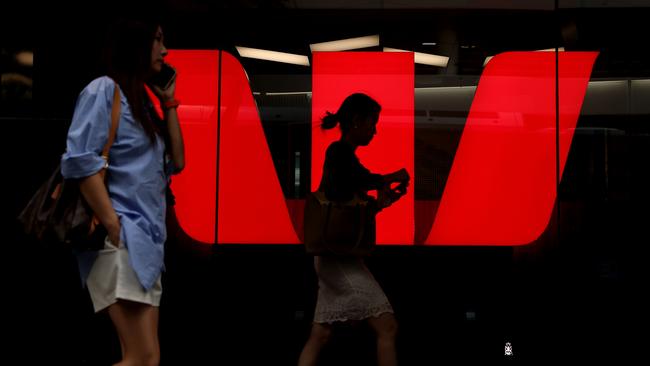Not every company needs to get to net zero: Westpac
The head of Westpac’s business bank says some organisations and sectors can, and must, carry heavier loads than others during the energy transition.
Business leaders have put a question mark over the need for blanket net zero pledges by corporate Australia, arguing it is not realistic for every company or sector to meet targets seen as central for combating climate change.
Westpac’s business banking boss Anthony Miller said it would be impossible for some entities to achieve net zero status, but that others could pick up the slack to get the country to its 2050 target.
“What we need is the community or society to get to net zero. And that just means some entities, some sectors, it’s impossible for them to be zero,” Mr Miller said at a business summit.
“There’ll be other (sectors) that can, if you will, carry a heavier load. And so it’s about how we collectively get to that safe destination of a net zero. It doesn’t mean every single company must be net zero, or every single customer.
“What I think we would say is that in time, we would like to see every customer thinking about their role in the transition, having a plan on how they will transition and demonstrating that plan is the right credible plan to be following in the context of society, government, community’s expectations on getting the country to net zero.”
Former competition tsar Rod Sims, now chair of the Superpower Institute – a body dedicated to helping the nation capitalise on the green energy transition -- took a similar view, saying not all companies needed to decarbonise, with others doing the heavy lifting.
“Should every company get to net zero right through its scope one, two and three emissions? I don’t think so,” Mr Sims told The Australian.
“I don’t think all companies need to (get to net zero) because ... it will happen anyway through the action of others. Not everybody needs to be running around trying to do everything to decarbonise their production chain because others will take the action that will see it happen anyway.
“If we focus on all the products that we need, and we decarbonise those, then we’ll get to net zero. It will happen and different companies will make different contributions to that.”
Westpac’s Mr Miller said the lender was “constantly trying to find the right balance” to meet the needs of interested parties, including customers, community, regulators and government, when financing projects, including gas projects, Mr Miller added.
“It’s very interesting that in relation to gas, the government — an important constituent, a community-important constituent — has identified that gas is here (and) is needed for the transition.

“And so therefore, we need to continue to make sure we work with our customers and our clients and make sure that they’re delivering in that way for the country.”
Labor’s future gas strategy, released in May, named gas as a key energy source “through to 2050 and beyond,” saying it would play a critical role in helping Australia meet its net zero target while providing cheap and reliable power.
Mr Sims disagreed with the prospect that gas would play a leading role out to 2050.
“I have no problem at all with gas in the short term. There’s no point running any risk with the reliability of the system. But in the long term, if we’re going to get to net zero, we shouldn’t be aiming to rely on gas. That just makes the whole job much harder.
“Once the world gets momentum (on the transition) -- and we’re not quite at the tipping point yet -- but when we get there, I think that momentum will mean it won’t just be coal we don’t use, it’ll be gas as well.”
Mr Miller said the government’s move on the future gas strategy was the right path forward.
Westpac’s support of “a number of oil and gas companies” was consistent with the lender’s position that these energy firms had a role to play in the climate transition, he added.
“We’ve been banking them for a period of time now. We have identified that gas has a role to play in the transition and so it’s appropriate that we work with them on that.
“We are of course working with our customers everywhere to identify transition plans. They’re no different to any customer.”
Westpac still has “a very small exposure” to thermal coal mining, he said, adding the bank would be out of the space by 2025 for companies that derive more than 15 per cent of revenue from thermal coal.
Mr Miller said getting to net zero would be “very challenging” for Australia but the country had to “keep at it”.
“It’s going to be very challenging to get there but you’ve got to have a goal and it’s got to be a challenging goal if we’re going to achieve what needs to be achieved.
“It’s interesting how as soon as it’s identified, that it’s looking tough … that people sort of start to fade and say, ‘hang on, let’s abandon it’. No, let’s stick to it.
“We see, at the moment, a really good alignment in terms of all levels of government, community, the private sector, all very focused on how we have to get there … sometimes it looks impossible, but you got to keep at it.”
He said all of Westpac’s clients were aware of the need to have transition plans, as he called out the opportunity for business to reinvest and create new jobs and industries on the path to net zero.







To join the conversation, please log in. Don't have an account? Register
Join the conversation, you are commenting as Logout